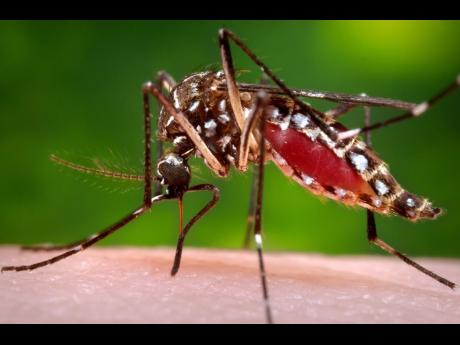Ministry lacks contingency plans despite chik-V, Zika health crises
Despite the severe impact of Zika and chikungunya viruses on Jamaica, the Ministry of Health...
Despite the severe impact of Zika and chikungunya viruses on Jamaica, the Ministry of Health & Wellness has failed to carry out an assessment and document the lessons learnt from the health emergencies.
This is one of the findings of an Auditor General’s Department investigation into the effectiveness of Jamaica’s institutional framework in enabling a strong and resilient national public health system.
The first case of the Zika virus in Jamaica was confirmed in January 2016 while the chikungunya virus first impacted the country in 2014. Health officials say that 80 per cent of Jamaica’s population were infected with the latter. Both are mosquito-borne diseases.
In a performance audit report tabled in Parliament on Tuesday, Auditor General Pamela Monroe Ellis said that in addition, there was no evidence that the health ministry incorporated post-event reviews to aid in responding to future health emergencies.
The auditor general also highlighted that the ministry is yet to conduct an evaluation of the lessons learnt from the COVID-19 pandemic, although it acknowledged the importance of the formal assessment and documentation of the lessons learnt.
Monroe Ellis said that an important element of health-system strengthening is the application of the lessons learnt from global and country experiences during public health emergencies.
The World Health Organization’s (WHO) guidance indicated that health systems can learn from emergency experiences and improve their capacity to prevent, prepare for and respond better to future emergencies.
The health ministry was also found wanting when the auditor general reviewed the country’s health infrastructure and its capacity to support health system resilience.
According to Monroe Ellis, the resilience of Jamaica’s public health system continues to be challenged by low hospital bed-capacity ratios and low doctor- and nurse-to-patient densities, which limit the capacity to adequately respond to public health emergencies.
Data obtained from the Pan American Health Organization Core Indicators Portal, a dashboard on countries’ hospital beds per 1,000 population, suggested that, in 2021, Jamaica had 1.68 hospital beds available for every 1,000 persons in the population.
In its 10-year strategic plan, the health ministry listed bed occupancy rate among the challenges affecting the public health system and acknowledged that “hospital bed rates relative to population size are low, but largely function at excess capacity”.
RESULT FINDINGS
In addition, the auditor general divulged that the health and wellness ministry did not demonstrate that it tracked doctor-to-population and nurse-to-population density in the public health sector to know whether doctors and nurses were sufficiently available to address the population’s healthcare needs.
“Our analysis of population data and the number of doctors and nurses in the public health system revealed a density of 9.0 doctors and 18.1 nurses per 10,000 population, representing a combined density ratio of 2.71 doctors and nurses per 1,000 population,” Monroe Ellis outlined. She said that this is below the Sustainable Development Goals index threshold of 4.45 skilled health workers (doctor and nurse/midwife) per 1,000 population, recommended by the WHO.
Monroe Ellis also warned that public healthcare resilience in Jamaica is threatened by the reportedly high attrition of healthcare workers.
The auditor general also found that health facilities are working in silos, creating fewer opportunities to build synergies among them in the sharing of information such as patients’ records, prescription drugs, medical equipment, and sundry items.
Hospitals across the four regions use the Patient Administration System (PAS), which operates in silos. This does not foster integration to allow for real-time sharing of information to create efficiency in supporting a resilient public health system.
Monroe Ellis reported that the National Health Fund committed $80 million to finance a pilot electronic PAS (ePAS); however, the planned 2017-2018 system roll-out did not materialise.
After spending $30 million on the ePAS, the ministry shifted strategic focus to implement the Information System for Health Plan of Action 2017-2021, which contains 25 strategic lines of actions for information system management and governance, data management and information technologies, knowledge management and sharing and innovation.
The ministry completed eight of these strategic actions. Another 12 are in progress, while five are yet to get started.

